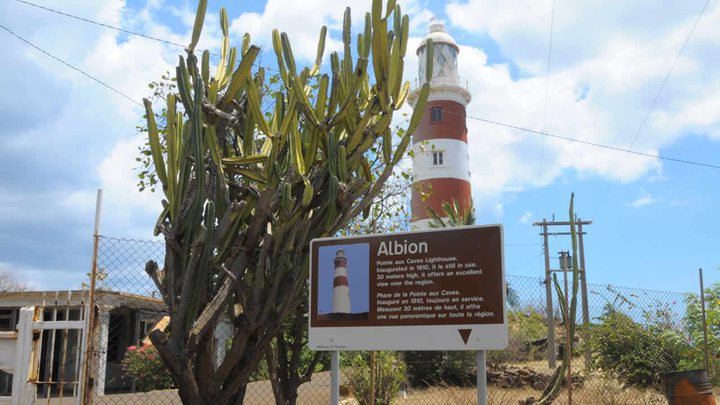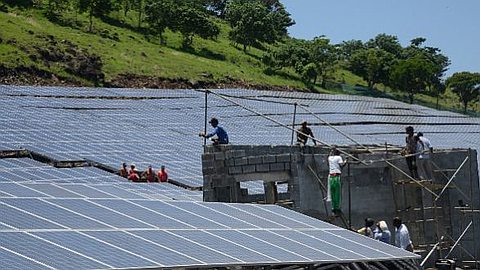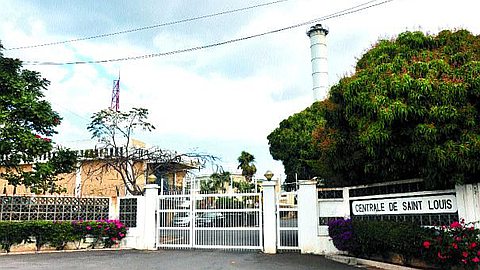Oil Refinery at Albion: Another CT Power Saga in the Making!

Recently, the establishment of a petroleum hub in the port area has triggered renewed interest from several international players in the oil industry. The Minister of Commerce last Thursday in Parliament revealed that a leading bunker trader is already operating in Mauritius.
Memorandum of Understanding were signed last November between Mangalore Refining and Petrochemicals Ltd (MRPL) and the State Trading Corporation (Mauritius) and IndianOil Company to construct oil storage terminals to service the growing marine bunkering activities in our region. The International Bunkering Industry Association held a bunkering forum last October to assess the business opportunities linked to the island development as an international bunkering supplier and hub. Macquarie bank Australia also joined the fray by signing an MOU with other partners through the Ministry of Finance.
The Minister of Finance in his Budget Speech shifted his focus by announcing an “International consortium is setting up a modular near shore mobile oil refinery and onshore storage facilities at Albion. Mauritius will be the first source of low sulphur bunker fuel (LS 380) in the region”.
The Minister of Commerce in his address on the Budget Speech commented on the bunkering and petroleum hub potential of the country and made scant reference to the construction of a modular near shore mobile refinery. The terms ‘near shore mobile refinery’ need clarification. Will it be a floating refinery in the lagoon facing Albion shore? We also understand that the refined products will be pumped up for storage near the Albion cliff. We are also gratified with the customary safeguards that the project “is implemented in a safe and secure manner in accordance with best oil industry practices which respond to highest national and international environmental standards”. We are also told that a consortium of five world class companies, Near Shore Resources Ltd, will build and operate the mini refinery: its parts constructed in modules designed to be transported and assembled near the shores of Albion, hence the appellation of near shore mobile refinery. Its refinery capacity of 30,000 barrels per day (bpd) is equivalent to 1.5 million tonnes of refined products annually – roughly our total annual import.
Mauritius currently imports 600,000 tonnes of black oil and 700,000 tonnes of white oil for its domestic market. 300,000 tonnes of specific grade of heavy fuel oil are used for marine bunkering. These supplies are sourced from MRPL under renewable three year contracts. The specifications of these oil products have varied characteristics to meet the needs of the different operations.
For example, CEB uses 175,000 tonnes of catalytic cracked heavy fuel oil 380 CST for its engines at Fort George power station while the other power stations use 250,000 tonnes of catalytic cracked heavy fuel oil 180 CST. The profiles of the oil characteristic used in Mauritius are easily met by large and sophisticated refineries like MRPL. International tendency supports the construction of mega refineries on the principle of economies of scale. Most refineries constructed recently vary between 200,000 to 1 million bpd; the largest one being the Gujarat based Jhamnagar refinery owned by Reliance with aggregate refining capacity of 1.24 million bpd.
Will the output of the modular refinery match the various specifications and categories of all our oil imports? Or will we have to complement the output of the mini refinery with additional imports?
The oil used by the modular refinery must be sweet crude i.e. low in sulphur content to meet the specification of the marine bunker fuel. The availability and cost of such crude can weigh in on the overall cost.
On the cost effectiveness of the project, the point raised above, i.e. would the refinery produce the same quantity and quality of fuels that we are currently importing? The rule of thumb is: it is better and cheaper to refine locally than to import. Prices are supposed to be lower including job creation and spin-off jobs around the refinery. The converse is the case for importation. A proper cost/benefit analysis should be conducted jointly by government and the promoters on both options.
Government policy to widen our economic activities in novel areas of potential growth deserves support but a project with underlying environmental hazards needs the collaboration of all sections of our society, otherwise we may end up with another CT Power saga.





